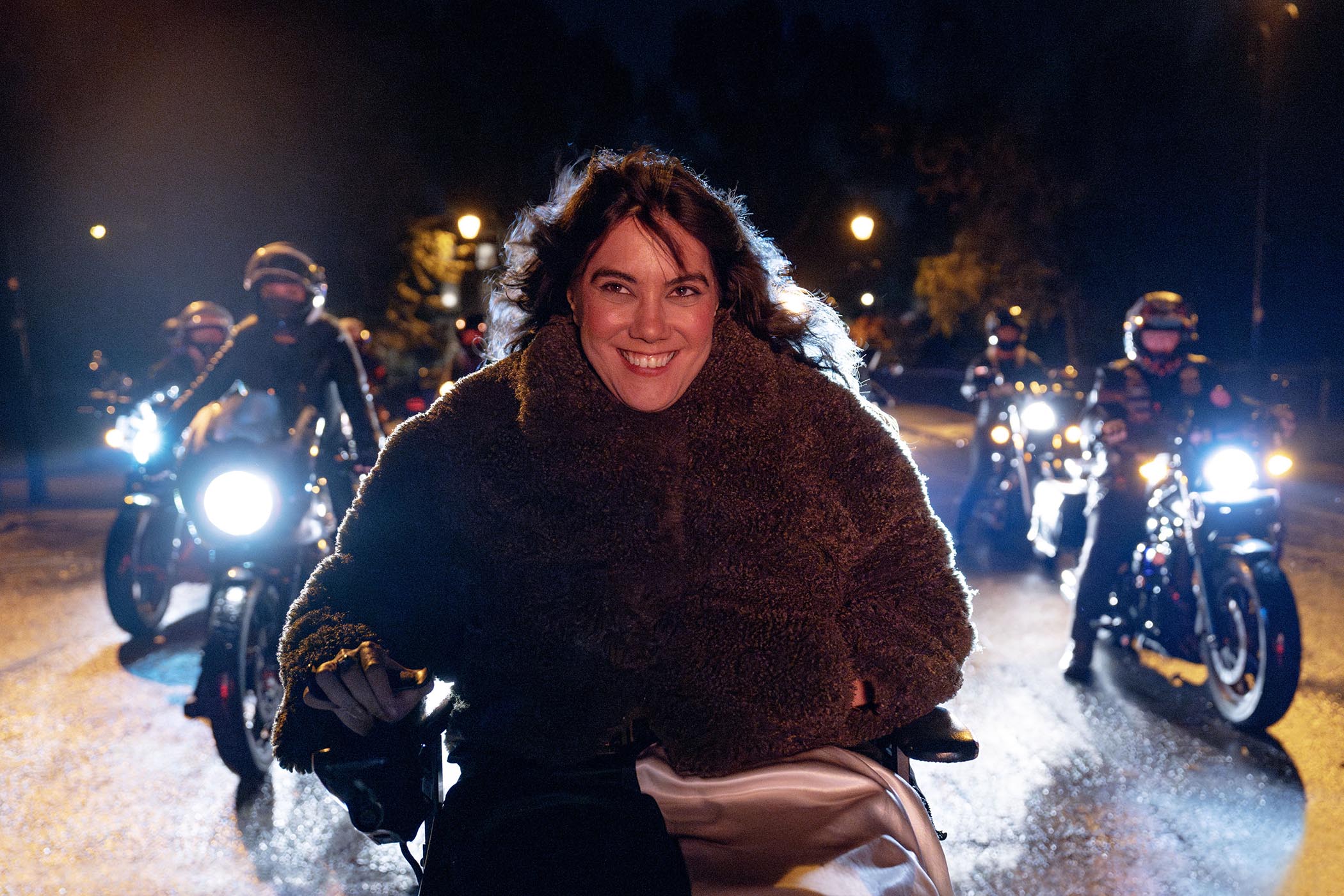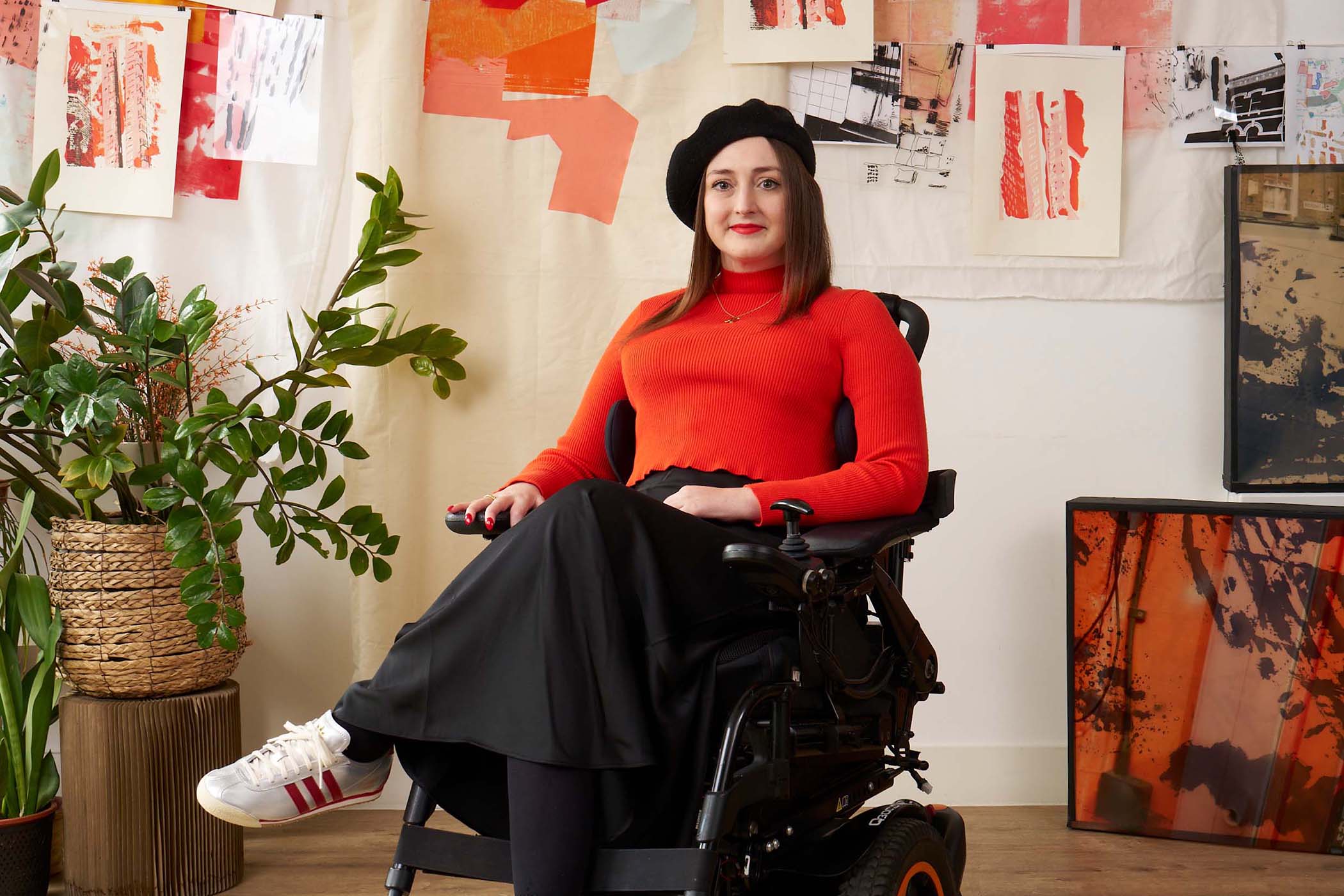A year after it was first broadcast, I have discovered We Might Regret This, a groundbreaking BBC2 comedy/drama co-written by and starring Kyla Harris. Unashamedly exposing the messy, darkly hilarious territory of disabled life, it was acclaimed by the critics and panned in all the predictable places as scatological leftie indulgence.
For me, watching the series in a oner, agog, it was joyful – the first time I’d seen anything close to my own experience authentically represented on screen. (Joaquin Phoenix tried in the movie Don’t Worry, He Won’t Get Far on Foot about the late cartoonist John Callahan, but as brilliantly as Phoenix acted, we knew he wasn’t disabled.)
Harris and I are both tetraplegics, paralysed by broken necks long before it was cool to be disabled. Familiar to both of us is the cheerfully shitty world of non-functional body functions, dependency, tokenistic inclusivity and always, but always, the condescension of the able-bodied.
Familiar to both of us is the cheerfully shitty world of non-functional body functions … and always, but always, the condescension of the able-bodied
Familiar to both of us is the cheerfully shitty world of non-functional body functions … and always, but always, the condescension of the able-bodied
Watching Harris harvest this rich seam of bathos, I remembered how 15 years ago two young comedy writers asked me to collaborate on a script for a TV series set in an NHS spinal unit, based on my story. At the time, sadly, I was too busy learning how to hold a knife and fork to help – sorry, boys! – but had I been able to, the humour wouldn’t have been dissimilar.
Believe me, there’s rich comedy in disability, and Harris is so good at it two further series have been commissioned. As Harris’s character Freya puts it, self-mocking and cynical as she justifies taking a cheesy job as a disabled model: “Disability’s having a moment.”
Harris is half my age and here we differ; she represents a new generation of young disabled women who, unlike me, are beyond the jokes unapologetic and kick-ass about their bodies – this is who they are and they’re proud of it. They express desire, seek fulfilling intimacy, won’t be patronised, and reject the enforced narratives of either tragedy or inspiration.
Grace Spence Green, whose back was broken as a medical student, published the memoir To Exist As I Am this year. It radically reframes disability from the age-old model of second-classness, someone to be pitied, someone who legitimises nosiness… What’s wrong with you? What happened to you?
Harris too has reclaimed her back story. She rejects the expectations of strangers. She tells them she doesn’t share her personal story. These young guns see such questions as invasive and ableist. Why should they revisit their trauma on demand? Why indeed?
I have some reservations. Ableism – oh horrid, clumsy word – is indeed tedious, but I don’t quite share their view it’s as harmful as racism, sexism and homophobia. Not right now. And I worry that young men – the majority of spinal injuries, after all – are being forgotten. It’s much harder for them to project power and status in broken bodies.
So I prefer to laugh than fight. But dear god I envy these young women their bolshiness – their readiness to accept, even love, their reclaimed bodies. Their attacking mode throws into sharp relief my embarrassed over-smiliness; my dislike of my wrecked body, sexy as a slug. I wish I had a fraction of their confidence, to rise above the sadness and what-ifs.
Newsletters
Choose the newsletters you want to receive
View more
For information about how The Observer protects your data, read our Privacy Policy
I saw Harris last week, strong and gorgeous, sitting for Sky’s Portrait Artist of the Year. One artist, an older man, painted her with a striking sense of inner melancholy. Startlingly, she started crying when she saw it. As did the artist. As did I. His sensitive eye had penetrated her defences.
Under our carapace, perhaps it is the case we all hurt the same way.
Photograph by Tom Oldham/Roughcut



